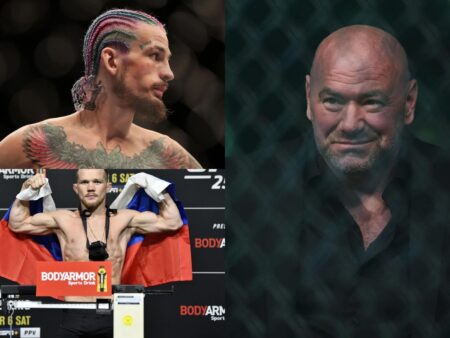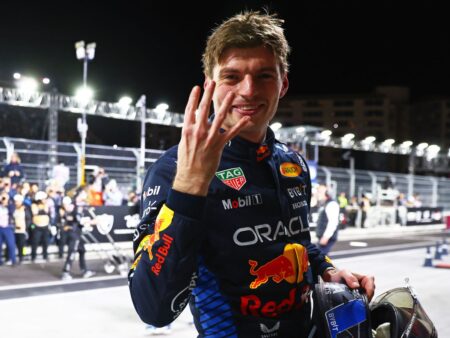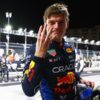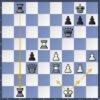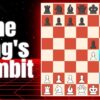The Ryder Cup is not merely a golf tournament; it is a crucible of national pride, raw emotion, and strategic brilliance, played out on a stage where individual prowess must bend to the will of the team. Amidst this intense atmosphere, few figures embody the dichotomy of personal ambition and collective endeavor quite like Bryson DeChambeau. Once characterized as a scientific outlier, perhaps even a controversial anomaly, DeChambeau has, through a remarkable evolution, emerged as a compelling, albeit polarizing, catalyst for Team USA, particularly when the roar of a home crowd provides the backdrop.
The “Gladiator” Persona: Spectacle and Substance
Picture the scene: a sprawling driving range, bathed in the late afternoon sun, transformed into an arena. On one side, a golfer, red-faced from exertion, repeatedly unleashes thunderous drives into the Long Island sky. The objective? A magical 200 mph ball speed. This is not a practice session; it is a performance. Fans, drawn by the sheer spectacle, chant and cheer, urging him on. “Rory can`t do that, Bryson!” echoes from the stands, injecting a competitive edge even into a warm-up. Each swing, each incrementally higher speed reading on the giant screen, fuels the drama. When the elusive 200 mph is finally achieved, accompanied by a colossal 361-yard carry, a wry smile and a shrug are his acknowledgments to the adoring crowd. As Xander Schauffele aptly observed, “Bryson, this is his arena. If he views himself as a gladiator golfer, this is as good as it gets.”
This pursuit of extreme power, coupled with an innate understanding of crowd psychology, defines DeChambeau`s Ryder Cup presence. He doesn`t just play golf; he orchestrates an experience. His every lash at the ball becomes a rallying cry, a tangible expression of aggression and dominance that resonates deeply with the partisan American fans.
From Individual Innovator to Collective Energizer
DeChambeau`s journey to this point has been anything but conventional. From his early days as the “Mad Scientist,” meticulously optimizing every variable of his game, to his recent transformation into a YouTube-savvy showman, he has consistently defied expectations. This evolution has not been without its critics. Analysts like Brandel Chamblee have suggested his showmanship is a calculated effort to “drum up some interest for himself” after a period of lower visibility on the LIV Golf tour. Even peers like Rory McIlroy have expressed skepticism, implying DeChambeau`s flair for mentioning other players is primarily a bid for attention. Indeed, the sight of him “chirping in Rory`s ear” at Bethpage might strike some as provocative rather than motivational.
Yet, it is precisely this unique blend of individuality and polarizing character that paradoxically makes him a potent force in a team event. While traditional golf values often champion stoicism and introspection, the Ryder Cup thrives on passion, overt displays of emotion, and an almost tribal connection between players and fans. DeChambeau, with his explosive drives and overt reactions, provides an abundant supply of all three.
The Strategic Value of Controlled Chaos
The strategic challenge for a Ryder Cup captain with a player like DeChambeau is not to temper his energy, but to channel it effectively. As U.S. team captain Keegan Bradley noted, “When you come to a Ryder Cup, you don`t want guys to try to be something they`re not. We have a lot of calm, mellow guys, so we need the energy from Bryson, and he brings that every day.” This energy, often described as “fiery,” serves a dual purpose: it can intimidate opponents and galvanize teammates. His past Ryder Cup record, a middling 2-3-1, suggests that harnessing this power in the foursomes format, in particular, requires a carefully chosen partner. The decision to pair him with rookies like Ben Griffin, bursting with confidence, or established players like Justin Thomas, is a testament to the tactical necessity of finding the right dynamic to complement DeChambeau`s unique intensity.
His presence, therefore, is not merely about his individual points; it`s about the intangible shift in atmosphere he creates. His commitment to the team, despite his different tour affiliation, has been praised by teammates, indicating a willingness to integrate his showmanship into the collective goal.
The Bethpage Effect: A Tsunami of Support
On American soil, particularly at a venue as raucous as Bethpage Black, DeChambeau`s appeal reaches a crescendo. He understands this symbiotic relationship with the crowd. His stated hope to “bring a lot of energy and a tsunami of a crowd that`s going to be rooting for Team USA” is not hyperbole; it is a declaration of intent. His practice rounds, where he engages fans at every turn, seeking their applause and feeding off their chants, are a dress rehearsal for the main event. His challenge to hit Bethpage Black`s hidden first green with a driver, a 360-yard carry, becomes another theatrical act, an “encore” demanded and delivered for the “entertained” masses.
Whether one sees him as a genuine entertainer or a master of self-promotion, the undeniable truth is that Bryson DeChambeau is a force perfectly attuned to the high-stakes drama of the Ryder Cup. He is the spectacle, the energy, and for the American team, a crucial, if unconventional, component in their quest for victory. As Scheffler succinctly put it, “The people love him. I`m excited to unleash him this week.” And unleashed he will be, adding another captivating layer to golf`s most passionate team contest.
